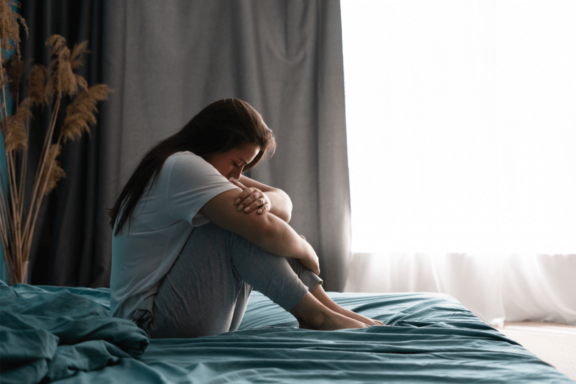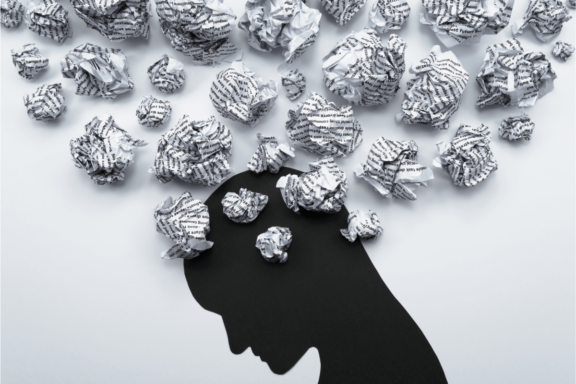Drug addiction is a serious and chronic condition that affects 35 million people worldwide.¹ Despite its prevalence, addiction is still not a well-understood condition, leading to a stigma that could keep those in need from getting help. If you’re struggling with an addiction, it’s crucial to know help’s available. Turn to the Connecticut Center for Recovery for an outpatient drug rehab in Greenwich.
Why Addiction Occurs and Why It’s Difficult to Treat
Addiction has nothing to do with your willpower or a lack of morality, as many people believe. Like any other chronic condition, such as asthma or diabetes, it’s an illness that can occur to anyone and one that both internal and external forces can trigger.
It’s not always clear what leads to substance use disorders, and there may not be one factor that causes the problem. Usually, a combination of factors plays a role.
Biology can influence the chances of developing an addiction. If you have close-blood relatives who’ve struggled with substance abuse, it’s more likely that you will as well.
Mental illness is another factor. People who suffer from depression, anxiety, or any other form of mental health concern may turn to drugs or alcohol to manage symptoms. This can then lead to addiction that makes mental health worse, creating a vicious cycle.
Your environment can influence your chances of developing an addiction, too, with those who experience abuse, especially early in life, being more likely to have this problem. Early exposure to drugs and stress also play a role.
For most people, the decision to start taking drugs is voluntary. Still, repeated use leads to structural changes in the brain that interfere with your self-control and ability to resist intense cravings. Because these changes in the brain persist even after stopping drug use, addiction is a relapsing disease.
When you use drugs or alcohol, your brain’s reward center gets flooded with dopamine. This leads to feelings of euphoria that mark the experience as one you want to repeat. The more you use drugs, the more your body starts to limit the ability of cells in this reward center to respond to it — this is what causes tolerance and makes it difficult to feel pleasure from anything but the drug.²
Additionally, there’s the problem of withdrawal symptoms. If you stop using drugs all at once, your body has trouble remembering how to function without their presence. This leads to uncomfortable and even dangerous symptoms that could prompt you to start using again.
Outpatient Drug Rehab in Greenwich: The Options You Have at Connecticut Center for Recovery
Drug use disorders can be devastating, affecting your mental health, putting your body at risk, and impacting your relationships. The nature of the disease makes it difficult to break away from the pattern of use and cravings, which is why you need to turn to a treatment program for help.
Day Treatment Programs: Combining a High Level of Care With Flexibility
Only some people can take time off work or step away from family responsibilities to get treatment. This shouldn’t stop you from accessing the help you need. At Connecticut Center for Recovery, we offer day treatment programs that allow you to get hours of care each day while still being able to go home at night.
At our facilities, you’ll delve into the underlying cause of the addiction by engaging in individual and group therapy sessions. Some of the therapeutic options we offer include:
- Cognitive-behavioral therapy
- Motivational enhancement therapy
- Holistic therapy
Group therapy sessions help you understand that others are also struggling with addiction. Isolation can be a serious issue for many people facing addiction, and it only makes mental health problems worse. You get the support you need by sharing your experiences and listening to those of others.
Intensive Outpatient Programs: Transitioning to More Freedom
After completing day treatment or for those who need a lower level of care, we recommend our intensive outpatient programs (IOP). These provide three hours of treatment a day so that you can continue progressing in your recovery while managing your everyday life.
IOP is an option that offers individual and group therapy sessions, along with family counseling, to help you rebuild the relationships addiction may have damaged.
Extended Care: Maintaining Your Sobriety
People who have completed treatment but need more support can choose our extended care program. This program is tailored to your specific needs. We know each of our clients deals with unique challenges, so we strive to provide the exact type of care you need to maintain your sobriety.
From small group therapy sessions to relapse prevention, we offer the tools you can use to heal from addiction.
Connecticut Center for Recovery: Offering the Addiction Treatment You Need
A drug use disorder puts your life at risk and makes every day a struggle. You don’t have to face this alone. When you turn to the Connecticut Center for Recovery, you can find the exact level of care you need to get treatment without pushing aside your work or family responsibilities.
With the right treatment program and people who are ready to guide you, it’s possible to break free from the hold addiction has on your life. Contact us at the Connecticut Center for Recovery for more.
Sources:
[1] https://www.unodc.org/unodc/en/frontpage/2019/June/world-drug-report-2019_-35-million-people-worldwide-suffer-from-drug-use-disorders-while-only-1-in-7-people-receive-treatment.html
[2] https://nida.nih.gov/publications/drugfacts/understanding-drug-use-addiction


